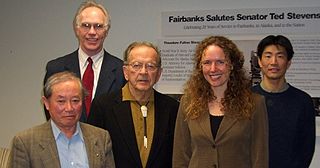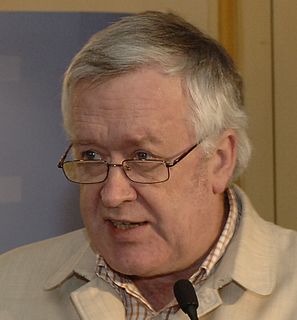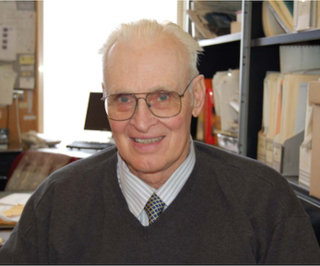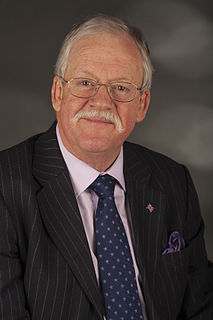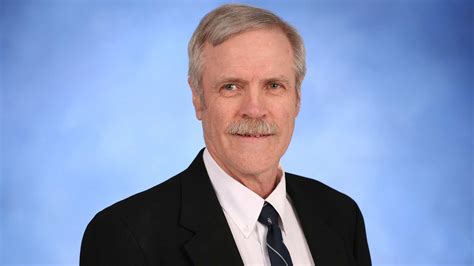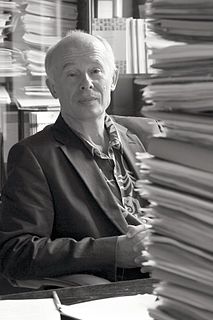A Quote by Syun-Ichi Akasofu
CO2 emissions have been increasing, but the rise in air temperature stopped around 2001. Climate change is due in large part to naturally occurring oscillations.
Related Quotes
CO2 is a minor player in the total system, and human CO2 emissions are insignificant compared to total natural greenhouse gas emissions. Therefore, lowering human CO2 emissions will have no measurable effect on climate, and continued CO2 emissions will have little or no effect on future temperature....While controlling CO2 emissions from burning fossil fuels may have some beneficial effects on air quality, it will have no measurable effect on climate, but great detrimental effects on the economy and our standard of living.
The climate system is constantly readjusting naturally in a large way - more than we would ever see from CO2. The CO2 kick [impact of CO2 emissions] is extremely small compared to what is happening in a natural way. Within the framework of a proper study of the sun-climate connection, you don't need CO2 to explain anything.
We can no longer completely avoid anthropogenic climate change. At best, limiting the temperature rise to two degrees is just about possible, according to optimistic estimates. That's why we should spend more time talking about adjusting to the inevitable and not about reducing CO2 emissions. We have to take away people's fear of climate change.
To reduce modern climate change to one variable, CO2, or a small proportion of one variable - human-induced CO2 - is not science. To try to predict the future based on just one variable (CO2) in extraordinarily complex natural systems is folly. Yet when astronomers have the temerity to show that climate is driven by solar activities rather than CO2 emissions, they are dismissed as dinosaurs undertaking the methods of old-fashioned science.
These proven positive consequences of elevated CO2 are infinitely more important than the unsubstantiated predictions of apocalypse that are hypothesized to result from global warming, which itself, may not be occurring from rising atmospheric CO2 levels. The aerial fertilization effect of atmospheric CO2 enrichment is the only aspect of global environmental change about which we can be certain; and to restrict CO2 emissions is to assuredly deny the biosphere the many benefits that accrue from this phenomenon.
For me the two biggest issues are climate change and animal welfare/animal agriculture. And oddly enough animal agriculture is such a contributor to climate change. According to the United Nations, 25% of climate change comes from animal agriculture, so every car, bus, boat, truck, airplane combined has less CO2 and methane emissions than animal agriculture.
Absolutely love the new campaign from the Optimum Population Trust: do your bit for addressing climate change by having fewer children - or even no children. The lifetime CO2 emissions of a UK citizen amount to 750 tonnes (the equivalent - apparently - of 620 return flights between London and New York), so the extra 10 million by which our population will rise between now and 2074 will, over their lifetimes, emit around 7½ billion tonnes of CO2..."births averted" is probably the most single most substantial and cost-effective intervention that governments could be using
Sensible policies on global warming should weight the costs of slowing climate change against the benefits of slower climate change. Ironically, recent policy initiatives, such as the Kyoto Protocol of 1997, have been introduced without any attempt to link the emissions controls with the benefits of the lower emissions.
It is impossible to talk about slowing climate change without talking about reducing CO2 emissions. Equally, it is impossible to talk about adapting to climate change without considering how we will feed ourselves. And it is out of the question that we can adapt agriculture without conserving crop diversity.
The response to my op-ed by global warming alarmists has been interesting. Former Vice President Al Gore has called me a "denier" and informs us that climate change is "a principle in physics. It's like gravity. It exists." Perhaps he's right. Climate change is like gravity - a naturally occurring phenomenon that existed long before, and will exist long after, any governmental attempts to affect it.
